The Balipara Foundation Awards introduced by the Balipara Foundation in 2013, stands as a platform to reward and encourage the efforts of grassroots conservationist and social entrepreneurs working tirelessly towards preserving the rich biodiversity of the Eastern Himalayas.

Annual award
Pangti Village Community and Forest Department of Nagaland

Wildlife Conservation Award
Aparajita Datta
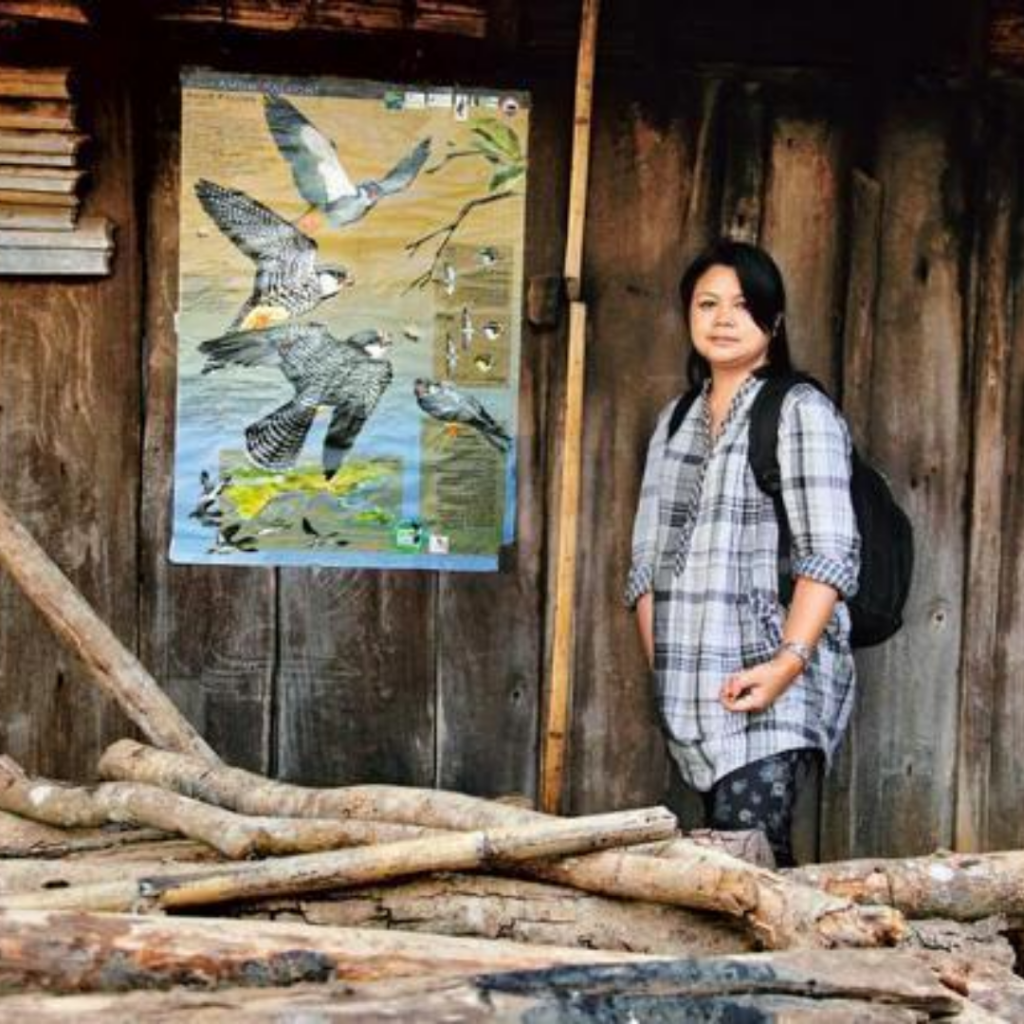
Young Entrepreneur Award
Bano Haralu
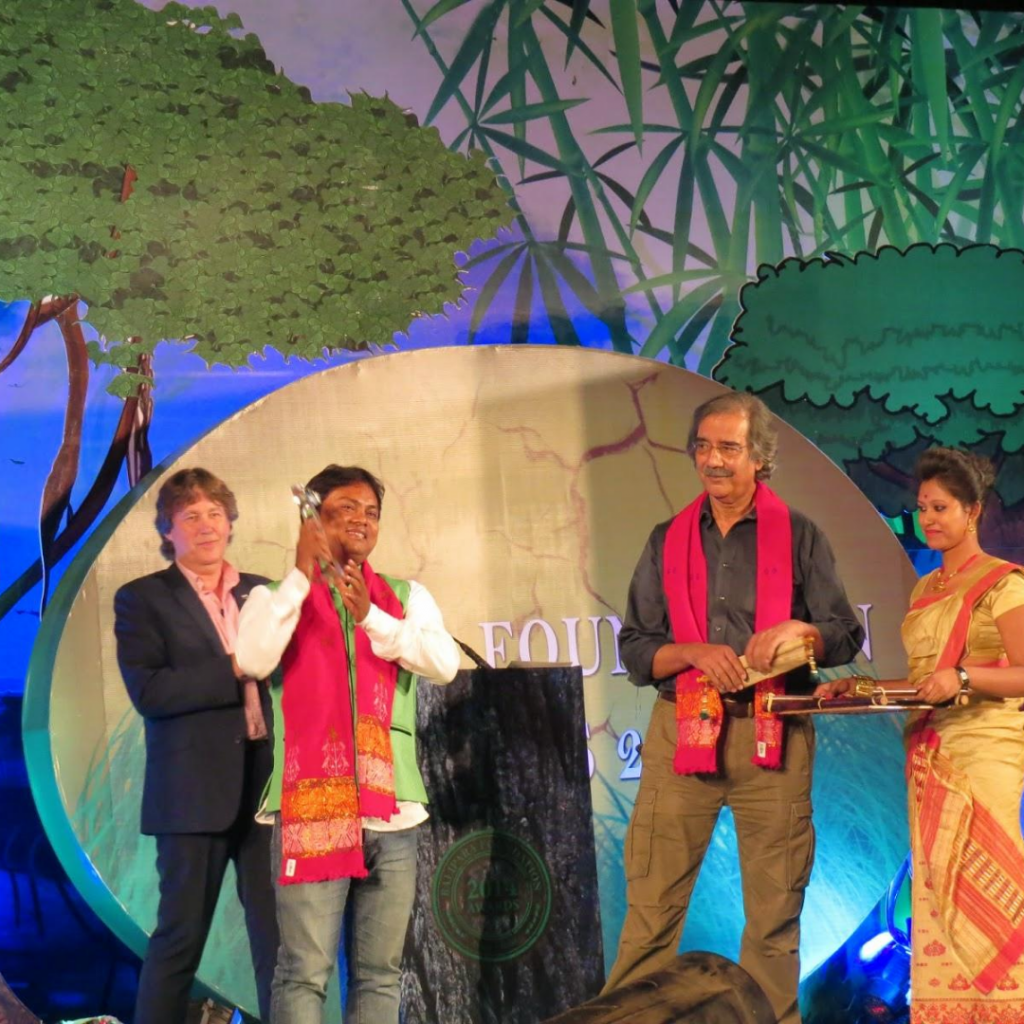
Conservation Through Innovation Award
Binod Bora
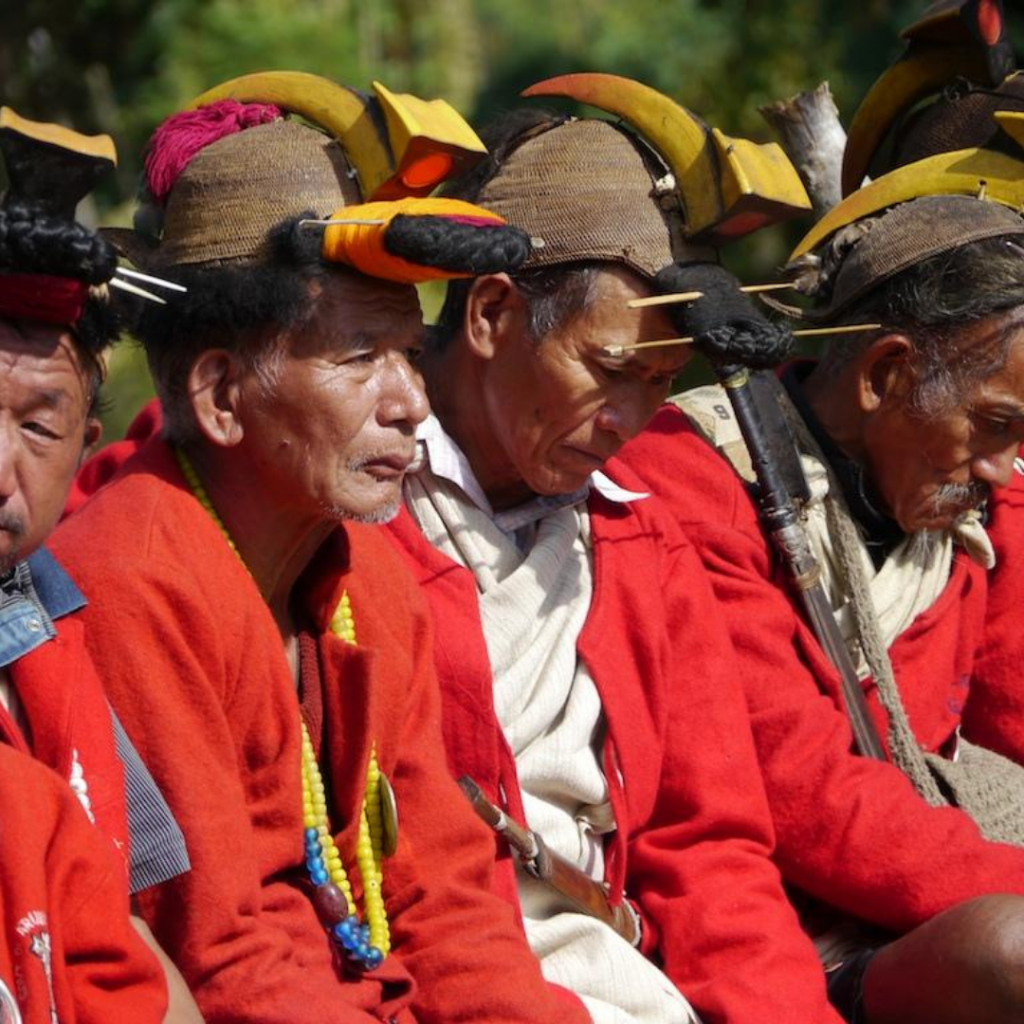
Ecological Restoration Award
Tana Tapi, Takum Nabum and The Ghora Aabhe Society
The Ghora Aabhe Society consists of reformed hunters and conservationists living in and around Pakke Tiger Reserve, who have become the guardians of wildlife in this landscape. Situated in the state of Arunachal Pradesh, members of the society are known for carrying out ground-level conservation work with communities and governing agencies towards the awareness and conservation of biodiversity. Two of the key people from the society are Tana Tapi and Takum Nabum.
Tana Tapi is the Divisional Forest Officer (DFO) of Pakke Tiger Reserve. With his leadership, Tana and his team work on setting up anti-poaching infrastructure and carrying out operations. Starting off with seldom 25 forest department personnel in 2005, Pakke National Park was completely understaffed. This was also the time when Tana joined the forest department as DFO. With assistance from the forest department authorities, the strength of forest personnel grew to 140 individuals and as many as 24 anti-poaching strike squads were recruited by 2007. The department was also upgraded with facilities during Tana’s tenure. The positive impact of Tana’s work was reflected with higher documented densities of tigers in Pakke National Park. And as the DFO of Pakke, Tana carried out multiple armed operations against poacher gangs. Tana then got involved with Takum Nabum and the Ghore Aabhe Society seeking an opportunity to promote community conservation in Pakke. He also tried to remove the stigma of difference between locals and forest department personnel by providing livelihood opportunities to the rural youth to be ‘forest watchers’ of Pakke. He was also able to convince certain tribal villages to donate a piece of land for the forest department to set up anti-poaching camps.
Takum Nabum heads the Ghore Aabhe Society and works towards promoting conservation in and around Pakke Tiger Reserve. He was also one of the key individuals who pushed forward the Hornbill Nest Adoption Program in 2011. Takum, along with the Nishi tribal community oversees the hornbill nest monitoring program in and around Pakke Tiger Reserve. The collaborative team constituted women self-help groups and they also played a role of being the informants for the Pakke Forest Department. For their diversified work, as a team, to help and conserve wildlife in Northeast India, Balipara Foundation awarded them the Ecological Restoration Award in 2014.
Social Impact: The Ghore Aabhe Society helped in the formation and capacity building of the women self-help group in Pakke. The society also provided mosquito nets to the Adhivasi tribe of remote villages. The society also facilitated villagers who have faced crop damage by wild animals, with relief camps and compensation for losses. They also regularly organize medical and veterinary camps for neighboring villages. The society was also involved in helping the people affected by flash floods and providing them with relief resources. The society also carried out training and awareness programmes on ethnic medicinal plants. The society organized the Pakke Nameri Peace Carnival to create awareness in Wildlife Conservation. And it also involved incapacity building of schools, by providing them with blackboards and other study materials in the Seijosa Area. Lately, the society has been giving handloom and handicraft-based communitylivelihood training for the locals.
Economic Impact: The Gohre Aabhe Society helped develop the Eco-Camp at Seijosa, Arunachal Pradesh, which helped provide income and employment opportunities for the local people through the tourism sector. The Eco-Camp was also involved in capacity building of local people to train them in catering, housekeeping and also in nature tour guiding for Pakke Jungle Camp. The society was also involved in the signing of a MoU with the Pakke Tour and Travel Department, Pakke Wildlife Department and Pakke Wildlife Sanctuary and Help Tourism Pvt. Ltd for the sustainable development of tourism sector in Seijosa area. The MoU was also aimed to help generate income and employment opportunities for the local people and for the conservation of the landscape.
Environmental Impact: The Ghore Aabhe Society carried out wildlife protection and global warming campaigns in multiple villages around Pakke and other villages in and around Arunachal Pradesh. The society was also involved in eviction drives of encroachers from Eagle Nest Wildlife Sanctuary. They also help in the seizure of illegal weapons from poachers from the forests. The society was integral in succesfully setting up the Hornbill Nest Adoption Programme in collaboration with Nature Conservation Foundation (Mysore) and Pakke Wildlife Sanctuary (DFO). The society also played a huge role in the recruitment of local people for the Hornbill Nest Adoption Programme.
Awards and Achievements:
2010 – Recipient of Wildlife Service award by the Royal Bank of Scotland and Sanctuary Asia
2015 – Recipient of All East Kameng Socio-cultural Organization award for community-based conservation
2010 – Tana Tapi – Recipient of the Carl Zeiss WildLife Conservation Award
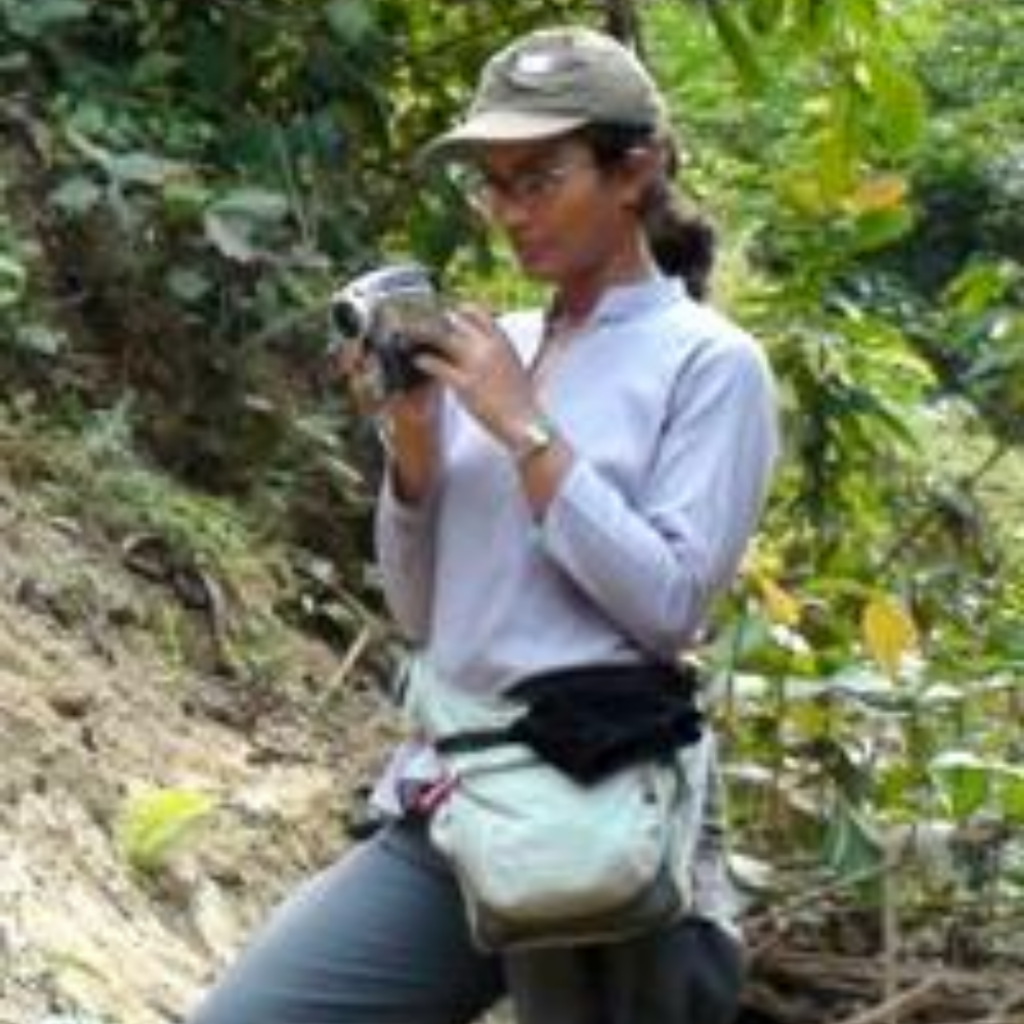
Ecological Restoration Award
Kashmira Kakati
Born and brought up in Assam, Karishma is a Wildlife Biologist working towards safeguarding a patch of 500 km² of rainforest in Jeypore-Dehing lowlands which includes Dehing Patkai Wildlife Sanctuary in Assam. She completed her post-graduation from Wildlife Institute of India, Dehra Dun and her doctoral studies from Cambridge University on ‘The Impact of Forest Fragmentation on Hoolock Gibbons in Assam’. Kashmira then took a break between 2002 and 2007 to raise her family with fellow Elephant Biologist Husband, Dr. Christy Williams. After coming back to the field, Kashmira started working for a carnivore project in the forests of Jeypore-Dehing where she discovered that the forest patch of Jeypore-Dehing was home to seven species of wildcats and multiple other species of carnivores as well. Some of the rare fauna that was captured during the study included the Clouded Leopard (Neofelis nebulosa), Marbled Cat (Pardofelis marmorata), and Golden Cat (Catopuma temminckii). Her project which was initially only phased for a couple of months, after the discovery of the extensive faunal diversity was extended for two years to study it extensively. And her project was supported by Critical Ecosystem Partnership Fund (CEPF), Wildlife Conservation Society – India, Rufford Small Grants Foundation, Forest Department and the government of Assam. Collectively her study documented 45 different mammalian species in the forests of Jeypore-Dehing, which brought about the required public and media support to protect the landscape from future threats.
Social Impact: Kashmira’s efforts towards the conservation of the forests of Jeypore-Dehing has directly helped in supporting the local community who have lived in this landscape since a long time. Before Kashmira carried out the carnivore project, the overall status of Jeypore-Dehing was degrading with heavy logging, mining and clearing of forests taking place and harming the local community. Due to heavy extraction of resources from the forests, floodwaters would erode and wash of parts of the forest
Economic Impact: Kashmira’s contribution to ecological restoration of the forests of Jeypore-Dehing did not directly affect the economic value of the community or the region, but it did increase the invaluable ecosystem services attached to restoration of forests such as soil formation, water purification, flood regulation, carbon sequestration, climate regulation, purification of water and air, and also control of pests and diseases.
Ecological Impact: Camera Trapping work carried out by Kashmira resulted in the discovery of seven wild cats and multiple other rare fauna at the forests of Jeypore-Dehing: Clouded Leopard (Neofelis nebulosa), Marbled Cat (Pardofelis marmorata), Golden Cat (Catopuma temminckii), Bengal Tiger (Panthera tigris), Indian leopard (Panthera pardus), Leopard Cat (Prionailurus bengalensis), Jungle Cat (Felis chaus), Dhole (Cuon alpinus), Malayan Sun Bear (Helarctos malayanus), Binturong (Arctictis binturong) and also various other species of mongooses, otters and civets. Her work also resulted in the first camera-trap record of Small-toothed Palm Civet (Arctogalida trivirgata) from India.
Awards and Recognition:
1999 – Ravi Sankaran Inlaks Fellow
2007 – Recipient of Critical Ecosystem Partnership Fund Grant
2008 – Recipient of Rufford Small Grant Program, United Kingdom
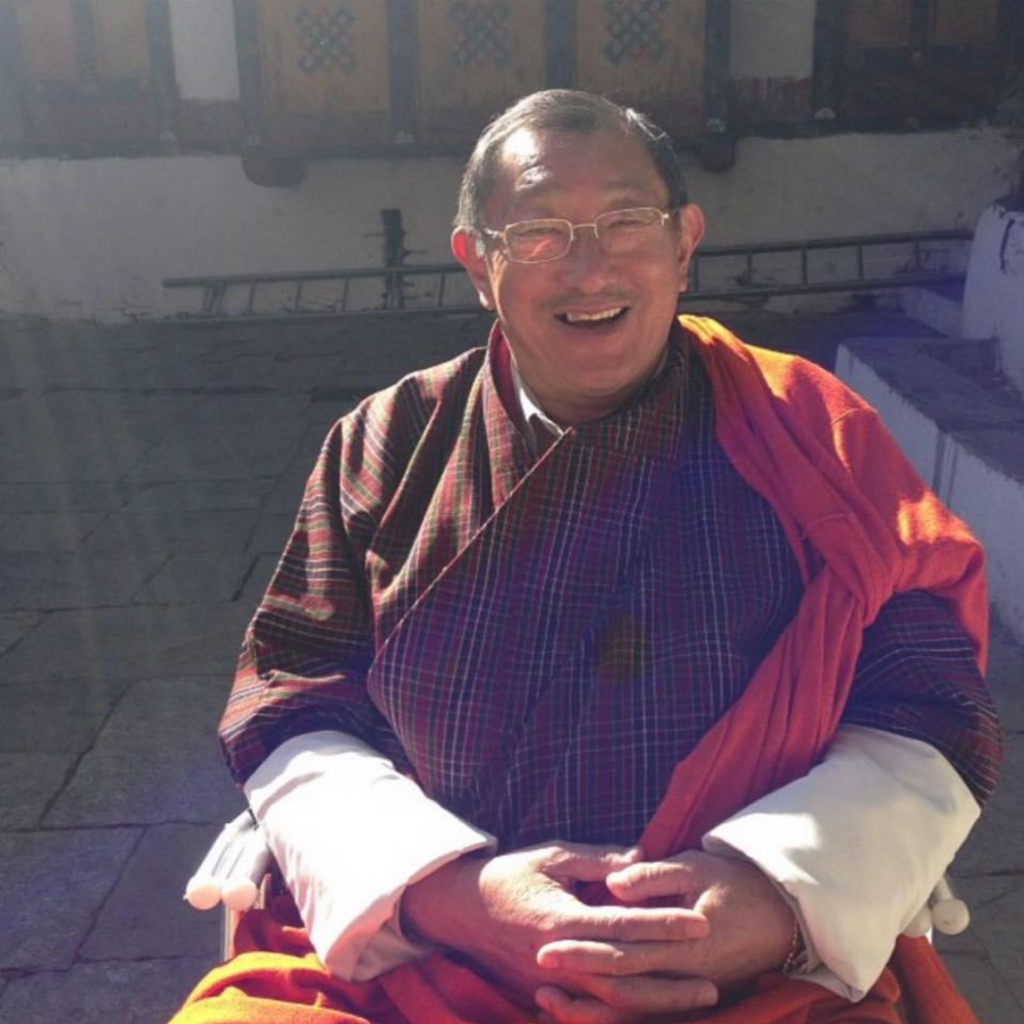
Lifetime Service Award - 2014
Dasho Paljor J. Dorji
Called as the Godfather of Conservation in Bhutan, Dasho Paljor J. Dorji has had a distinguished career with the Royal Government of Bhutan, serving three kings in the capacity of Magistrate of Paro District 1969-1972, High Court Judge 1972-1974, acting Chief Justice of Bhutan 1974-1985, Chief Justice of Bhutan 1985-1987, Deputy Minister for Social Services 1988-1991, Ambassador to the United Nations and European capitals 1991-1994, Deputy Minister to the National Environment Commission 1994-1997. Dasho is also the Founder of the Royal Society for the Protection of Nature in Bhutan (RSPN), Bhutan’s First Environmental NGO and the Founder President of the Bhutan Ornithological Society as well as the Bhutan Ecological Society June 2010 (BEST). He is also the Ambassador to the United Nations in Geneva, also accredited to Austria, Finland, Sweden, Norway, Denmark, Netherlands, EU (Brussels), IFAD (Rome), and FAO (Rome).
Dasho initiated the Bhutan Trust Fund and also facilitated multiple environmental conservation efforts in the country. At present, Dasho serves as a Special Advisor to the National Environment Commission under Royal Command from His Majesty the Fourth Druk Gyalpo.
Social Impact: Dasho helped in improving lives of local communities in and around Protected Areas.
Economic Impact: Dasho’s contribution to the field of nature and wildlife did not have a significant impact in an economic stance.
Ecological Impact: Dasho was involved in promoting and encouraging various conservation efforts in Bhutan. He also encouraged research studies and conservation-based conferences in Bhutan. And Dasho was also involved in fundraising for the wildlife conservation work in Bhutan. He also helped in the setting up of various environment-based NGOs for the welfare of wild animals. He has also attended and spoken in various environment and conservation-based conferences to support and promote the biodiversity of Bhutan.
Awards and Recognition:
1988 – Recipient of the Global 500 Laureate from UNEP, for his service
1994 – Officer Order of The Golden Ark Netherlands presented by the late Prince Bernhard

Mark Shand Mahout award – 2014
Purna Chandra Rabha

Mark Shand Mahout award – 2014
Bhumidhar Deka

Mark Shand Mahout award – 2014
Mongal Ghatowal

Mark Shand Mahout award – 2014
Kiron Rabha

Mark Shand Mahout award – 2014
Sukla Das

Nature Activist Award - 2014
Saipari Sailo
Saipari is a postdoctoral fellow at North Eastern Hill University (NEHU) who has been immensely involved in the field of wildlife science and conservation since 2004. Her field of interest is specifically in herpetology, and she has also been a part of the team that discovered a new species of frog Leptolalax tamdil in Tamdil Lake, Mizoram. Her discovery was documented and published in the international scientific journal Zootaxa. Under the DST research grant for Women Scientists, Saipari has also worked on the effect of pesticides on the development of Fejervarya limnocharis in Eastern Khasi Hills, Meghalaya. Shealso went on to receive her PhD for her doctoral work in the ecology and biology of Annandale’s frog Clinotarsus alticola.
For her contribution to science and conservation of amphibians in Northeast India, Saipari was awarded the Nature Activist Award by Balipara Foundation in 2014.
Social Impact: Saipari’s wildlife science and conservation work has very little or no social impact to communities.
Economic Impact: Her work was more oriented towards the scientific aspect of wildlife conservation and very little on the social and economic viewpoint.
Ecological Impact: Saipari has extensively worked on studying the distribution and ecology of amphibian communities in India. She has also worked on impact of human-related changes on amphibians and other herps as well. She has also carried out biodiversity assessment of amphibians in different regions in Northeast India.
Awards and Recognition:
2008 – Recipient of the Best Participant Award during the 1st SERC School in Herpetology, Department of Zoology, North Orissa University, Baripada.
2008 – Recipient of the 2nd best oral presentation Award for the paper – ‘Amphibian Diversity in Mizoram’ at the National Symposium on Advances in Zoology: Faunal Diversity and Ecophysiology, Department of Zoology, NEHU, Shillong.

NATURENOMICS™ Award
Neihunuo Sorhie
Neihunuo Sorhie comes from a simple and modest family upbringing. Her father Lt. Duopie-o Sorhie, died when she was very young. She has two brothers Vozilie and Akhrie-o in the family, for whom she would weave shawls from a young age. Her mother taught her how to weave and by the age of six she was able to weave clothes herself. The weaving was a part of her childhood and culture, and eventually it transcended to being her passion in life. Due to her financial background, Neihunuo could not complete her education and neither did she exclusively study weaving, but with her hard work and determination, she managed to do a brilliant job in it. She was also supported in every step by her mother.
Neihunuo eventually went on to set up her own enterprise where she would employ around 60 tribal weavers who would develop a range of products, ranging anything between shawls and purses made to showcase the exquisite Naga craftsmanship and culture. She is known for giving individual ‘finishing touches’ to each of the products herself. And with the help of her profound passion for weaving, her enterprise has been showcased in more than 90 different exhibitions both in India and abroad. She continues to develop her skill and craft in weaving and textiles, and for this, Balipara Foundation presented her the Naturenomics™ Award in 2014.
Social Impact: Neihunuo has helped in providing livelihood opportunities to a small portion of tribal women in North-east India, and till date continues to increase the capacity of people who can work in her enterprise.
Economic Impact: Neihunuo has helped to increase the reach and awareness of Naga Tribal groups and about their art and culture, with respect to textiles and other products.
Environmental Impact: Neihunuo, through her enterprise, is in a moderate way helping tribal women deviate from extracting natural resources from the park and instead channeling them to depend on sustainable livelihood through weaving.
Awards and Achievements:
2007 – Recipient of National Award from National Centre for Textile Design

Young Naturalist Award - 2014
Tongam Rina
Tongam Rina is the Associate Editor of The Arunachal Times and is known for her bold articles on current affairs in Northeast India. She was near-fatally shot in front of her office in 2012 by gunmen for writing on sensitive issues. In the past, Tongam and her staff has received numerous threats for her writing against NSCN(IM), corruption and super-hydro dams of Arunachal Pradesh. She has also shed light to the imbalance in distribution of food within the state, illegal developmental activities, extremism by Maoist groups, environmental scandals and also regarding the state of women in Northeast India. Born in 1979, in a very short duration, Tongam has been able to become one of the prominent journalists of Arunachal Pradesh. She has also experience in being a school teacher in her early days. She also led the Hunger Project’s State Unit in Arunachal Pradesh, besides teaching communication at the State University.
Tongam has received several accolades for her journalistic contribution so far. Tongam also received the Young Naturalist Award by Balipara Foundation in 2014 to confer her for her contribution in highlighting important issues on communities and environment in Northeast India.
Social Impact: Tongam has reported and written on the discrimination and imbalance of rights and power for the local communities in Arunachal Pradesh. She also raised her voice on the atrocities against the women in Arunachal Pradesh.
Economic Impact: Tongam’s reports and articles on current events in Arunachal Pradesh have highlighted economic viewpoints and conditions prevailing in the state of Arunachal Pradesh and also in other states of Northeast India.
Ecological Impact: Her reporting on issues like the illegal construction of hydro dams in Arunachal Pradesh helped in informing and bringing the problem under public viewing. She has also reported and written on multiple other environmental degradation case studies which have helped governing authorities to take stern action against offenders.
Awards and Recognition:
2012 – Recipient of Laadli Media Award for Gender Sensitivity, Eastern Region, in Kolkata.
2013 – Recipient of ‘Freedom and Future of the Media’ Award by Media Foundation, Leipzig, Germany.
2014 – Honored by `Reporters without Borders` – Reporters Sans Frontier-RSF (the international organization that works for freedom of the press and information), and is the only Indian journalist to find a place in the list of `100 information heroes`.
2014 – Recipient of CNN-IBN Indian of the Year Award for her contribution to Public Service.
2014 – Recipient of Courageous Journalism’ Popular Choice Award in Arunachal Pradesh.


